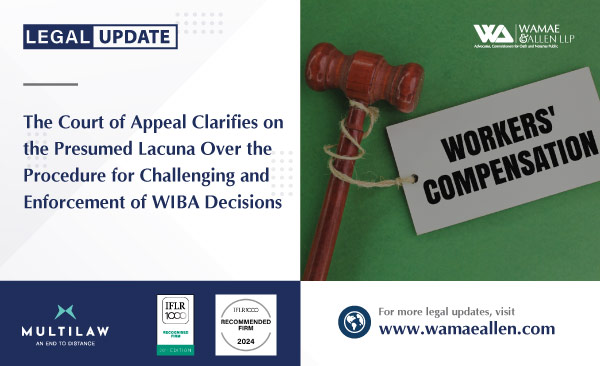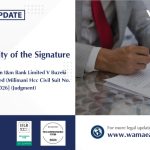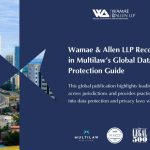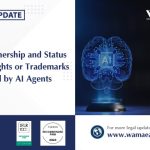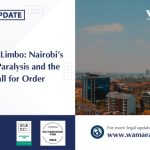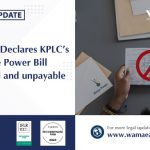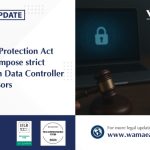The case originated from a claim filed by Theopot Patrick Charles at the Employment and Labour Relations Court (ELRC) in Malindi. In the claim, Theopot sought to enforce an award of compensation issued by the Director of Occupational Safety and Health Services (DOSH). The award was pursuant to the provisions of the Work Injury Benefits Act, Cap 236.
Proceedings at the ELRC
The ELRC found that, based on the evidence tendered by the parties, Theopot was engaged by the Cheto as a casual employee and that he was injured in the course of his employment. The ELRC therefore upheld the Director’s award; holding that the same was payable to the Respondent by the Appellant.
Aggrieved by the ELRC’s decision, Cheto moved to the Court of Appeal to challenge the said decision on grounds that the Judge erred in facts and law, including by enforcing a decision where the Appellant was not involved, failing to recognize the Respondent was not an employee of the Appellant, and failing to acknowledge the Appellant’s right to a fair hearing.
At the Court of Appeal
Based on the above grounds, the Court of Appeal framed two issues for determination as follows:
- Whether the learned ELRC Judge erred by failing to find that the Appellant was not informed of, or was not party to the proceedings before the Director, thereby violating his right to a fair hearing; and
- Whether the learned Judge erred by adopting the Director’s award.
Duty to be informed and participate in the proceedings before the Director, OSHA
On the first issue, the Appellant argued that he was not aware of the proceedings before the Director as he was not notified of the same, and as such, the said proceedings should be nullified. However, the Court of Appeal disagreed with the Appellant and found that the argument presented by the Appellant seemed to be an afterthought since the same was not raised in the Appellant’s pleadings filed at the ELRC.
The Court upheld the validity of the compensation award, affirming that it was issued in accordance with the provisions of the WIBA and that the Appellant cannot purport to disregard it.
The Right to lodge an Objection to an award by the Director
The court further found that the procedures followed were fair and in compliance with the principles of natural justice and that if the Appellant had an issue with the said decision, he ought to have lodged an objection with the Director within 60 days of notice of the award, but he did not lodge any objection.
In any case, if the Appellant had fundamental constitutional issues with the Director’s award, as he seemed to have, he ought to have invoked court’s judicial review jurisdiction in a separate suit to quash the Director’s decision. However, the Appellant never lodged any judicial review application. Accordingly, the Court dismissed the Appellant’s arguments regarding procedural irregularities.
Jurisdiction of the ELRC to enforce the DOSH awards
On the second and last issue, the Appellant argued that the ELRC Judge misdirected himself by stating he had no authority to address the matter and failed to declare the Director’s decision as null and void. The Court of Appeal confirmed that the ELRC had the jurisdiction to enforce the award, as it falls within the scope of its mandate under Sections 86 and 89 of the Employment Act, Cap 226.
The Court further relied on the case of Richard Akama Nyambane v ICG Maltauro Spa [2020] KEELRC 847 (KLR), where Mbaru, J. held that an award by the Director is enforceable through the ELRC.
Finally, on this issue, the Court of Appeal reiterated that the proper avenue for the Appellant to challenge the fairness and lawfulness of the proceedings before the Director would be to lodge a judicial review application seeking to quash the said proceedings and the resultant award.
Conclusion
This judgment in Charles v Cheto reinforces the legal framework for the enforcement of compensation awards under the WIBA and the need to adhere to the procedures and timelines prescribed in law. Any reluctance and/or mistake as to procedure presents a risk of rendering the party’s claim moot, and thus incurably helpless. Most importantly, it underscores the jurisdiction of the ELRC in enforcing DOSH awards, which should not be confused with the judicial review issues surrounding the procedure and the resultant award.
This article is provided free of charge for information purposes only; it does not constitute legal advice and should be relied on as such. No responsibility for the accuracy and/or correctness of the information and commentary as set in the article should be held without seeking specific legal advice on the subject matter. If you have any query regarding the same, please do not hesitate to contact Employment and Labour Relations Department at WAELR@wamaeallen.com
 Loading...
Loading...
About the author
Lawrence M. Ongeri specializes in Civil Litigation, Commercial Litigation, Constitutional Interpretation and Alternative Dispute Resolution.
Lawrence has gained his experience in the arena of Dispute Resolution by acting for and advising both local and international clients in civil, constitutional and commercial disputes. Over his years of practice, Lawrence has engaged in novel, complex and high value litigation before the Court of Appeal, High Courts, Magistrates’ Courts as well as Quasi-Judicial Tribunals.
Flavious is an Associate in the Real Estate and Securitization Department.
She has vast knowledge and hands on experience in Real Estate, Securitization, Banking, Finance, Company Law, Corporate Governance, Insolvency and Commercial Law. She also has keen interest in policy making and emerging legal commercial issues in general.
She is a promising transactional advocate with exemplary interpersonal skills and exudes diligence, integrity, resilience, confidence and great enthusiasm in all her tasks.
Denis Mutugi specializes in Commercial Litigation and Alternative Dispute Resolution.
Denis graduated with a Bachelor of Laws, LLB (Hons) from The University of Nairobi in 2021 and was admitted to the Roll of Advocates of the High Court of Kenya in the year 2023.
Denis has amassed a considerable wealth of experience in conducting legal research on various complex legal matters touching on Commercial, Insurance, Employment and Insolvency law and bankruptcy.
-
Luke Otienohttps://wamaeallen.com/author/luke-otieno/

